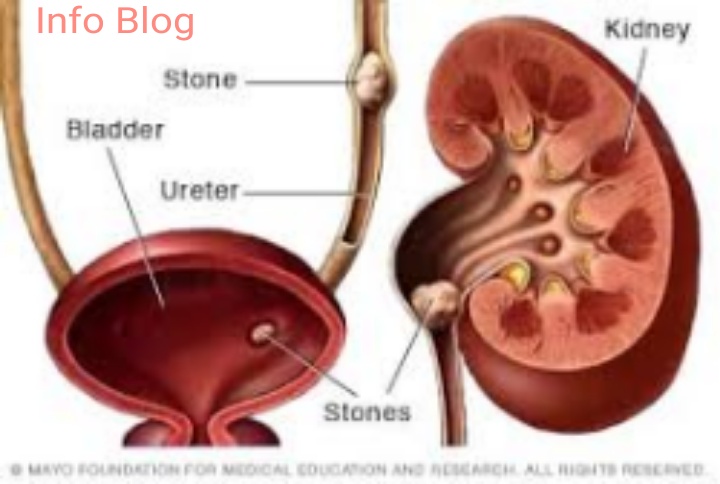What Causes Kidney Stones
Kidney stones are really painful, but they are not entirely common. They are most common in middle-aged men, who are more likely to have a family history of kidney stones. Kidney stones can be caused by drinking too little water, exercise (too much or too little), obesity, weight loss surgery, or eating food with too much salt or sugar. Infections, pregnancy, and family history might be important factors in some people. By paying attention to your kidney stones, you may be able to avoid complications, including more serious medical issues.
Causes of kidney stones
Kidney stones occur when urine becomes too concentrated and becomes trapped in the kidney. The pressure of the urine causes crystals to form in the urine and these crystals cause pain when they move down the urethra to the bladder. Kidney stones are usually a symptom of a greater problem such as diabetes or calcium oxalate stones, and not a disease in themselves. The most common causes of kidney stones are drinking too little water, exercising (too much or too little), obesity, weight loss surgery, or eating food with too much salt or sugar. In some cases, infection or family history may be important in determining the cause of kidney stones.
Symptom of kidney stones
Kidney stones are a common type of urinary tract obstruction in which crystals of calcium, oxalate, uric acid, or another substance are precipitated and form an insoluble mass in the kidney or ureter. When this occurs, the stone obstructs the flow of urine and can cause significant pain and discomfort. The first symptom is usually pain in the back, abdomen, or side. This may be accompanied by blood in the urine, nausea and vomiting, fever, and high blood pressure. The stones may also cause a cough, blood in the urine, or blood in the stools.
Treatment and prevention
Kidney stones are small deposits of minerals that form in the kidneys and then pass out of the body. Kidney stones are also called uroliths. Kidney stones are usually caused by too much urine, a diet high in salt and sugar, dehydration, or a lack of certain important minerals. There are several things you can do to reduce your risk of getting kidney stones, including drinking enough fluids, limiting your intake of salt and sugar, losing weight, and exercising. If you do get a kidney stone, there are several things you can do to make it less painful. These include drinking a lot of fluids, using ibuprofen or other pain medications, and having the stone passed out of the body by a healthcare professional.
What to do if you think you might have a kidney stone
If you are experiencing pain in your lower back or abdomen, it might be a kidney stone. Upon first onset of pain, try drinking more fluids and resting to see if the pain goes away. However, if the pain persists, then you should visit your doctor. Your doctor will conduct a physical exam and ask you about your history and lifestyle. The doctor will also test for infection in the kidneys and whether or not you have had other similar episodes in the past. The doctor might also order lab tests to help identify the cause of your pain. If you think you might have a kidney stone, then the key thing is to try to get in touch with your doctor. You should not ignore pain and the discomfort that you are experiencing.
What can you do to prevent kidney stones?
Kidney stones are a common, painful and painful condition. They are one of the most common causes of emergency-room visits in the United States. Kidney stones can be prevented by drinking enough fluid, staying active, losing weight, controlling your blood pressure, watching what you eat and avoiding too much salt or sugar. There are many things that can cause kidney stones, including drinking too much water, exercise (too much or too little), obesity, weight loss surgery, or eating food with too much salt or sugar. Infections and family history might be important in some people.
What can you do to prevent kidney stones?
Kidney stones are a serious condition that can cause pain, bleeding, and other complications. People who are at risk for kidney stones should drink plenty of water, and should also try to eat foods that are low in salt, sugar, and protein. It’s best to decrease your intake of caffeine and alcohol. You can also try to increase your fluid intake. If you are having trouble maintaining your fluid intake, you can consider taking a multivitamin. Exposure to chemicals can also contribute to kidney stones. If you are experiencing frequent kidney stone episodes, you should avoid exposure to these chemicals. If you are experiencing frequent kidney stone episodes, you should also try to change your diet. People who are at risk for kidney stones should avoid dehydration.
Conclusion:
We hope you found our article on kidney stones helpful! Kidney stones are a health and pain problem that many people face. Remember that there are many possible causes, so this is a good place to start. We are happy to provide more information on kidney stones, so please contact us by visiting ___. Thank you, and please share this article with anyone who may need it!.
Kidney Related Articles:



